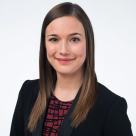With four city councillors and Mayor Chris Spearman not seeking re-election this fall, Lethbridge city council will look very different after the polls close on Oct. 18.

For some, the hope is that the new council will better represent an increasingly diverse Lethbridge.
Diversity consultant Tymmarah Mackie hopes voters set aside their preconceived notions when exercising their democratic right.
“We’re not going to actually have democracy — it’s not going to do what it’s supposed to do — if we don’t actually represent the community,” Mackie said.
“If we could actually look at our own biases and set them aside, and vote for more diversity, then we would see councils truly representing the community and impacting change that would be very meaningful for those diverse populations.”
Mackie says in many cases, biases are unconscious, and the typical voter doesn’t realize what’s impacting their choices.
“When we look at who should be or could be representing our community on council, there’s a tendency to allow our biases to choose who we’re voting for,” she said.

Get daily National news
“So most people in Canada will look to the privileged person — and that is white, middle-class men.”
Rob Miyashiro was the only visible minority sitting around the horseshoe in the two terms he served on council and most recently had just one female colleague.
Not seeking re-election, Miyashiro hopes the community does their homework and elects a council that represents their interests.
“You want to see yourself reflected in government, you want to see people like you that are making decisions for you,” Miyashiro said.
Miyashiro said he grew up in the area and didn’t face any overt racism during his time on city council, but said for immigrants and other minority members of the community, the idea of running can be a daunting one.
“If we only have middle-class, Caucasian people on council, what does that say to everybody else? If you only have straight people what does that say? If you only have men on council, what does that say to all the women in the city? So I think that’s what people need to understand when they’re casting their vote.”
University of Lethbridge associate professor of history and Asian studies coordinator Gideon Fujiwara saod the systemic issues that deter people from getting into politics need to be addressed.
“People with senior voices need to speak out against that and provide equitable support,” said Fujiwara. “Leadership is something that’s fostered, so if there are young BIPOC candidates, women going into politics, they need good mentorship.”
Fujiwara said mentorship will lead to the breaking down of more barriers.
“Ethnicity, gender, sexual orientation, religious beliefs, disability and ability, I think we want all voices at the table to be able to speak for the community and make decisions.
“Otherwise, if it’s a small demographic speaking for everybody, a lot of perspectives get lost.”
He said educating voters is another key to moving the needle in a more diverse direction.
“I think that if you have a council that’s not as diverse, it probably reflects who came out to vote. So that’s a key part of it. We have to inform the electorate,” Fujiwara said.
In the 2017 municipal election, just 27 per cent of eligible voters in Lethbridge cast ballots. A full list of 2021 candidates can be found here.


Comments